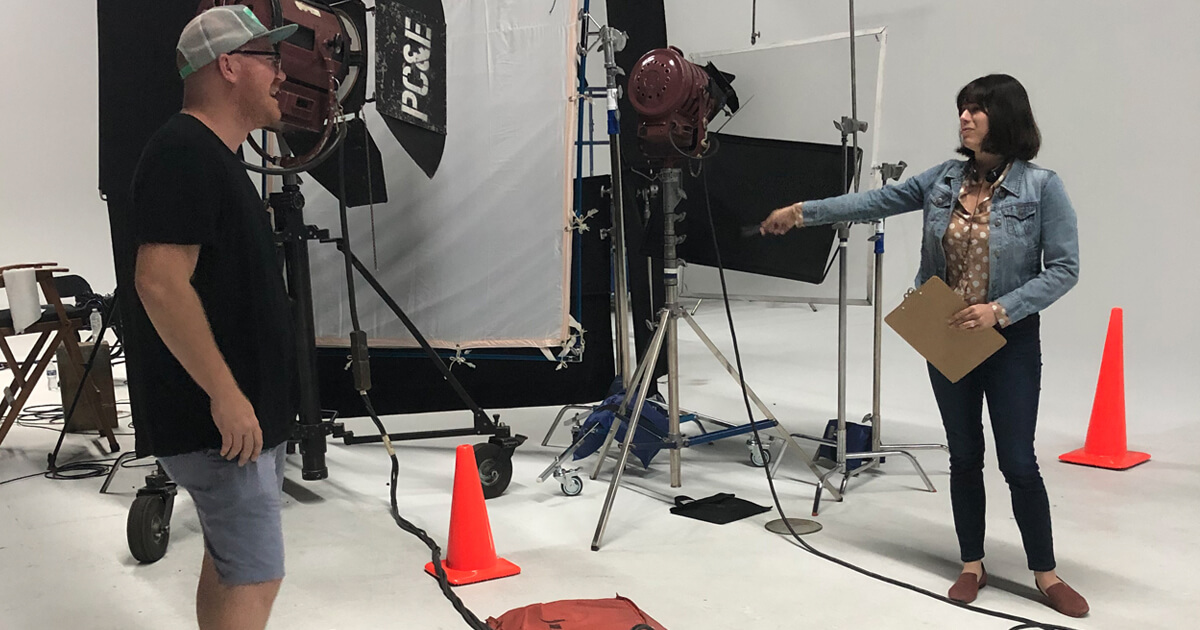Just How Event Production Functions: A Comprehensive Take A Look At the Process
Event production is a facility and organized procedure that calls for cautious preparation and implementation. It starts with developing clear purposes and understanding the target market. Each action, from budgeting to place selection, plays a crucial role in making certain success. As the procedure unravels, numerous components have to align flawlessly. The nuances of this elaborate operation commonly go unnoticed. What are the essential stages that add to a remarkable event?

The Preliminary Drawing Board
When beginning on event production, mindful preparation is important to guarantee a successful result. The initial drawing board serves as the structure for all subsequent initiatives. Throughout this stage, event manufacturers need to specify the event's objective and purposes plainly. Recognizing the target market aids customize the experience and messaging, assuring importance and engagement.Producers have to also take into consideration the event layout, whether it be in-person, online, or crossbreed, as this will affect various logistical aspects. Selecting a suitable date and place is important, as it impacts availability and availability.Furthermore, setting up a reputable team is basic for dividing responsibilities and simplifying communication. Establishing a timeline with landmarks warranties all jobs are completed on schedule. This stage includes complete study, including recognizing possible challenges and designing methods to minimize risks. Ultimately, a well-structured preliminary preparation phase sets the tone for an effective event production journey.

Budgeting and Resource Appropriation
In event production, reliable budgeting and resource allocation are essential for success - event production charlotte. Establishing economic criteria sets the foundation for all succeeding choices, while resource distribution approaches ensure that every part of the event is sufficiently sustained. With each other, these elements assist keep control over expenditures and enhance using offered sources
Developing Financial Parameters
Establishing financial criteria is crucial to the success of any kind of event production, as it establishes the structure for efficient budgeting and source allocation. This process begins with specifying the general budget plan, which incorporates all aspects of the event, including location prices, event catering, and marketing. By recognizing available funds, event planners can prioritize expenses and assign resources appropriately. On top of that, it is necessary to conduct thorough marketing research to prepare for potential costs and recognize financing resources, such as sponsorships or ticket sales. Developing clear monetary parameters also help in danger management, allowing organizers to reserve contingency funds for unexpected expenditures. Ultimately, a well-defined budget works as a roadmap, directing the event production group towards attaining their objectives while preserving financial control.
Source Distribution Methods
Effective resource circulation strategies are essential for making best use of the impact of an event while sticking to budget restrictions. Successful event production requires a precise technique to budgeting and source allotment. Coordinators should prioritize necessary elements such as venue, event catering, and innovation, making sure that funds are assigned to locations that improve attendee experience. A detailed spending plan must detail expected expenditures and identify areas for prospective expense savings, such as negotiating with suppliers or checking out sponsorship chances. Additionally, tracking expenses throughout the preparation procedure helps prevent overspending. By employing strategic source circulation, event manufacturers can supply a memorable experience while maintaining monetary duty, eventually contributing to the total success of the event.
Place Selection and Logistics
Choosing the right location is necessary to the success of any event, as it sets the phase for the total experience. Venue selection entails assessing various factors, consisting of capacity, ease of access, and location. Coordinators must think about the target audience and the nature of the event, making certain the venue straightens with the event's goals.Logistics play a considerable role in this procedure, entailing setups for seating, audiovisual devices, and providing services. A well-chosen venue must promote smooth flow for guests and personnel, boosting engagement.Additionally, examining possible locations for features like auto parking, toilets, and fire escape is essential for safety and ease. The timeline for safeguarding the location is additionally crucial, as prominent locations might schedule swiftly - event production charlotte. Comprehensive planning and timely execution can inevitably contribute to a seamless event experience, making place choice and logistics basic elements of successful event production.
Creative Principle Growth
While the venue establishes the physical stage, imaginative idea growth forms the event's identification and narrative. This procedure begins with identifying the event's objective and target market, enabling event manufacturers to formulate a compelling theme that resonates with participants. Brainstorming sessions usually include varied perspectives, fostering cutting-edge concepts that align with the event's goals.Once a theme is developed, visual elements such as shade palettes, signs, and decoration are developed to improve the total ambience. Storytelling techniques may additionally be incorporated to produce an interesting trip for individuals, ensuring a remarkable experience. Furthermore, factors to consider relating to amusement, tasks, and interactive components are straightened with the chosen idea, enhancing the theme throughout the event.Ultimately, effective creative idea advancement guarantees that every facet of the event functions cohesively, leaving a long-term impact on guests and meeting the event's goals. This fundamental work lays the groundwork for subsequent planning and execution phases.
Teaming up With Suppliers and Vendors
Successful event production rests on efficient collaboration with suppliers and distributors. Selecting dependable companions, bargaining agreements properly, and making certain timely shipments are essential action in this process. Each of these variables adds substantially to the total success and smooth execution of an event.
Picking Reliable Partners
Just how can event planners assure a smooth production experience? Selecting reputable partners is essential in attaining this objective. Event planners need to carry out complete research study to identify suppliers and providers with a tried and tested track document of excellence. This includes inspecting referrals, examining profiles, and assessing customer responses. Coordinators should focus on companions that demonstrate professionalism and trust, timely interaction, and a desire to team up. Structure solid connections promotes depend on and enables fast problem-solving during the event. Additionally, it is advantageous to choose neighborhood vendors that understand the place and local logistics. Eventually, an effective event depends upon the synergy in between organizers and their companions, making certain that every facet of production runs efficiently and efficiently.
Working Out Contracts Effectively
Reliable negotiation of contracts is a crucial action in the partnership in between event organizers and their suppliers and providers. This procedure involves clear interaction of assumptions, deliverables, and timelines. Coordinators need to conduct comprehensive research on market prices and sector criteria to develop a standard for settlements. It is necessary to create a collective atmosphere, motivating open dialogue regarding terms, prices, and possible backups. Organizers should also focus on comprehending the vendor's abilities and restrictions to align their demands properly. Versatility can bring about equally advantageous agreements, cultivating lasting connections. Crafting well-defined agreements that include particular performance metrics can assist ensure accountability, inevitably leading to effective event execution and satisfaction for all parties involved.
Making Sure Timely Distributions
Timely deliveries find out are crucial for the smooth execution of any event, needing attentive collaboration in between organizers and their vendors and distributors. Efficient communication is vital, as it helps establish clear assumptions concerning shipment routines, amounts, and specific requirements. Organizers typically create detailed timelines to outline critical turning points, making sure all celebrations continue to be straightened throughout the procedure. Regular check-ins with suppliers can help determine potential delays early, enabling for positive options. In addition, constructing solid relationships with dependable suppliers fosters depend on and responsibility, which can result in much better service and prioritization. By prioritizing these joint initiatives, planners can decrease interruptions, thereby enhancing the overall performance of event production and making sure that all essential materials and services show up as prepared.
Marketing and Promotion Approaches
While organizing an occasion, the success of marketing and promotion methods can substantially affect presence and engagement. Effective strategies commonly include a combination of electronic advertising and marketing, typical advertising, and grassroots outreach. Making use of social media sites systems permits real-time communication and best site targeted advertising and marketing, getting to specific demographics efficiently. Email marketing campaigns can additionally engage possible guests with personalized content and reminders.Collaborations with influencers or industry leaders can additionally enhance credibility and widen reach. Producing appealing web content, such as videos or blog sites, assists to generate buzz and suffer rate of interest leading up to the event. Additionally, leveraging early-bird discount rates and special rewards can incentivize ticket purchases.Promoting via conventional channels, such as posters or neighborhood media, remains relevant, specifically in community-focused events. A detailed strategy that integrates several techniques warranties maximum presence and involvement, ultimately adding to the event's success and the production of an unforgettable experience for participants.
On-Site Execution and Monitoring
On-site execution and management are essential elements that figure out the overall success of an event. Reliable coordination during the event ensures that all components straighten with the planned schedule. Event managers oversee logistics, consisting of supplier coordination, tools setup, and visitor services. Keeping an eye on timelines and addressing any unanticipated problems are essential for keeping a seamless experience.The staff plays a substantial duty, as trained workers are responsible for various tasks such as registration, info dissemination, and technical assistance. Interaction amongst staff member is essential; it cultivates a joint setting and makes it possible for quick resolution of challenges.Additionally, safety protocols must be followed, guarding the health of all guests. Post-event examinations are additionally part of on-site management, supplying insights for future improvements. By concentrating on these aspects, event producers can develop remarkable experiences that fulfill or go beyond guest expectations while accomplishing the event's goals.
Regularly Asked Questions
Just how Do I Choose the Right Event Motif?
Choosing the appropriate event theme involves taking into consideration the target market, event function, and venue. Researching existing trends and gathering input from stakeholders can additionally inspire creative concepts that reverberate and produce an unforgettable experience.

What Are Typical Blunders in Event Production?
Common blunders Get More Info in event production typically include insufficient planning, poor communication amongst group participants, budget plan mismanagement, ignoring to think about the target market's requirements, and stopping working to conduct a comprehensive post-event analysis for future enhancements.
Just How Can I Determine Event Success?
To measure event success, one can assess guest satisfaction, involvement degrees, budget plan adherence, and post-event responses. Trick efficiency signs, such as ticket sales and social networks interactions, additionally provide beneficial insights into overall performance.
What Should I Do if It Rains on the Event Day?
In the event of rainfall on the day, the coordinator needs to implement backup strategies, such as securing outdoors tents or moving activities indoors. Interaction with attendees about modifications is important to guarantee a smooth experience regardless of climate difficulties.
Exactly How Can I Ensure Attendee Involvement Throughout the Event?
